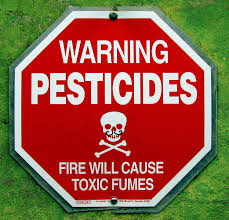A warming climate is exacerbating global inequality by pushing critical natural resources, such as fish stocks, away from impoverished equatorial regions and making them more exploitable by the wealthy, according to astudy released on Wednesday. While the gap between the rich and poor in the U.S. and worldwide has expanded at a mind-boggling pace in recent decades, the new study, designed by scientists at Princeton, …
Greenhouse gases caused glacial retreat during last Ice Age
A recalculation of the dates at which boulders were uncovered by melting glaciers at the end of the last Ice Age has conclusively shown that the glacial retreat was due to rising levels of carbon dioxide and other greenhouse gases, as opposed to other types of forces. Carbon dioxide levels are now significantly higher than they were at that time, …
Global sea levels have risen six meters or more with just slight global warming
A new review analyzing three decades of research on the historic effects of melting polar ice sheets found that global sea levels have risen at least six meters, or about 20 feet, above present levels on multiple occasions over the past three million years. What is most concerning, scientists say, is that amount of melting was caused by an increase …
Billions of mysterious creatures dead along West Coast — Expert: Death totals are staggering, “it’s got to be billions”
Billions of Blue Jellyfish Wash Up on American Beaches… In recent weeks, about a billion jellyfish-like “purple sailors” have washed up on West Coast beaches… The jellies started washing up on Oregon and Washington State beaches four to six weeks ago… Then they started showing up in California… KOMO, Apr 17, 2015: There’s an unusual sea creature being pushed ashore from …
Study Links Widely Used Pesticides to Antibiotic Resistance
This has not been a good week for glyphosate, the active ingredient in Roundup and other herbicides. On Friday, the World Health Organization (WHO) announced that it had classified glyphosate, the United States’ most widely-used pesticide, as “probably carcinogenic to humans.” Now, the chemical has another strike against it. A study published today by the American Society of Microbiology’s journal mBio has linked glyphosate and two other widely-used herbicides–2,4-D and dicamba–to …




